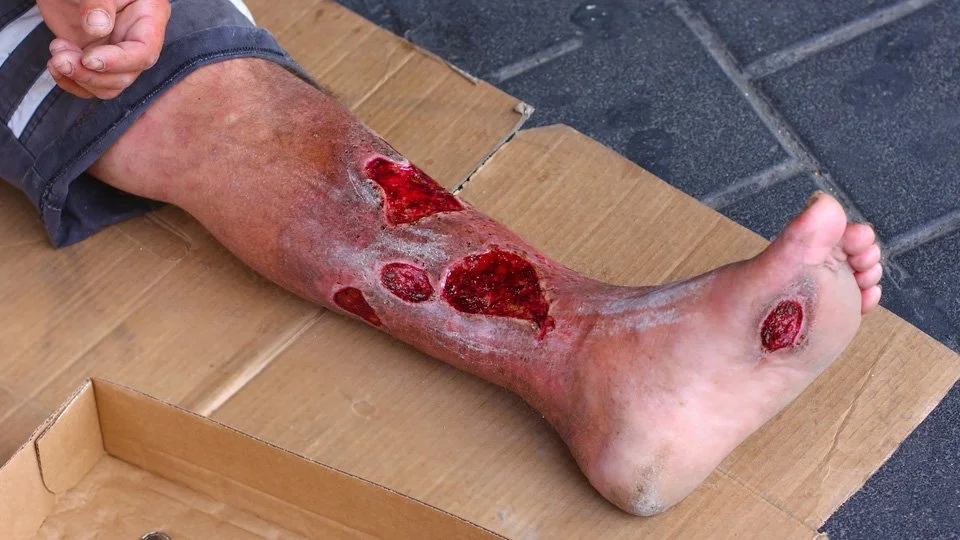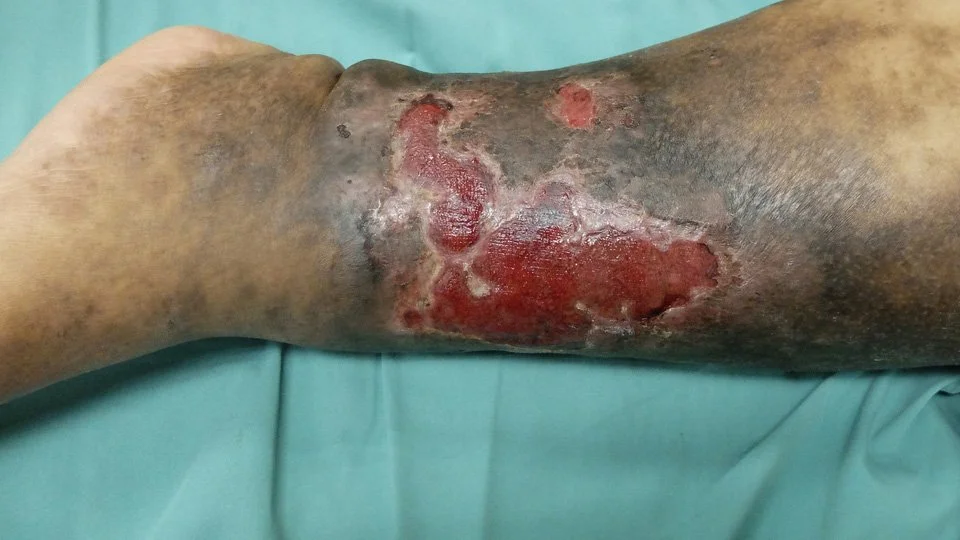Mixed Ulceration
Mixed Ulceration From Arterial and Venous Insufficiency
Mixed-arterial and venous disease is prevalent in a significant subset of patients with lower extremity ulcerations. Lower-extremity ulceration is debilitating and has a significant economic impact.
Various types of lower extremity ulcers exist, including venous, arterial, neuropathic, lymphatic, malignant, infectious, medication-induced, and inflammatory.


Therefore, clinical history and physical examination are necessary to distinguish them. However, in some subsets of patients, both arterial and venous disease coexists, and they develop ulcerations from mixed etiologies. In these cases, the dominant disease process must be teased out and treated first.
Treatment Algorithm
In our Ulcer clinic,we mandate our patients with a full arterial and venous duplex evaluation in developing a treatment plan specific to each patient’s clinical presentation.
Coexistence of arterial and venous disease is estimated to be present in up to 26% of patients with lower extremity ulcerations. The treatment of these mixed ulcers is optimally achieved by following an algorithm that involves assessment of the wound and degree of arterial and venous insufficiency.
Don’t let vein issues affect your life.
Book a call with us
After Endovascular intervention, standard wound care and compression therapy remain crucial to wound healing for prevention of ulcer recurrence.
Conditions We Treat
- Varicose veins
- Superficial Venous Thrombosis Phlebitis
- Thread / spider veins
- Swollen leg
- Deep vein thrombosis (DVT)
- May turners syndrome
- Varicose veins in pregnancy
- Varicose veins in obese patients
- Restless leg syndrome
- Varicose veins of the testicles
- Recurrent Varicose Veins
- Hidden Varicose Veins
- Hemosiderin Brown Stains
- Lipo dermatosclerosis (LDS)
- Venous Eczema
- Leg Ulcers
- Vaginal and Vulval Varicose Veins
- Pelvic Congestion Syndrome (PCS)

